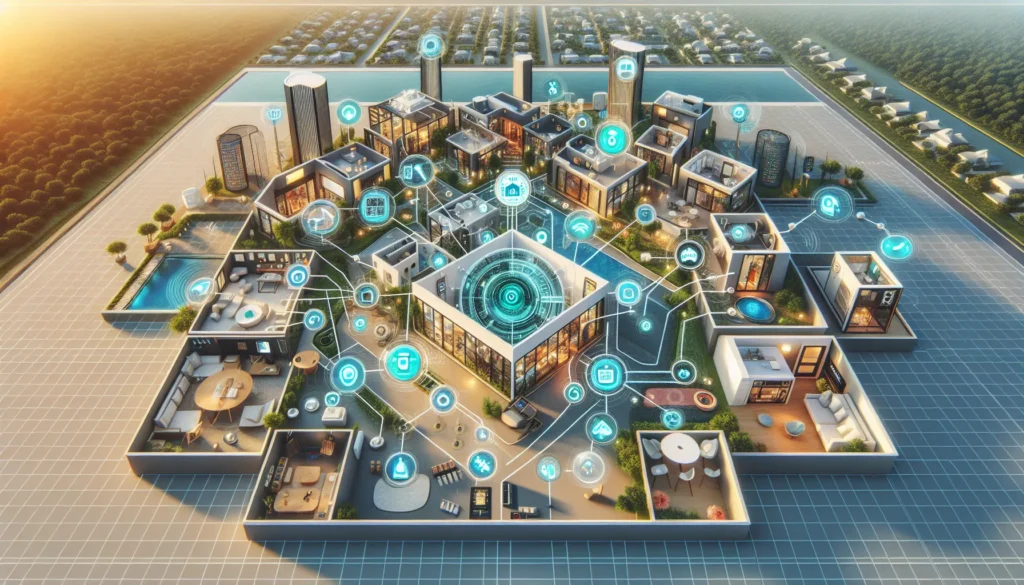How Has Technology Changed the Home Buying Process?
Exploring the dynamic landscape of real estate, we’ve gathered insights from co-founders to business owners to uncover the seven ways technology is reshaping the home buying experience. If you’re navigating the real estate market, partnering with a reputable Chicago property management company can provide invaluable support and expertise, ensuring your investments are managed with care and efficiency. From the convenience of online platforms streamlining home searches to the allure of smart home features attracting buyers, industry experts and estate agents weigh in on the digital transformation.
- Online Platforms Streamline Home Searches
- Blockchain Enhances Transaction Security
- Digital Communication Improves Response Time
- Big Data Informs Market Trends
- Online Real Estate Auctions Increase Access
- AI Powers Customer Service in Real Estate
- Smart Home Features Attract Buyers
Online Platforms Streamline Home Searches
Technology has revolutionized the way we search for homes. With the help of online real-estate platforms, buyers now have access to a wealth of information at their fingertips and we can also go online and learn how to hire a home renovation contractor if we need one once we found a home we like. They can easily search for properties based on location, price, and other criteria, without having to physically visit each property, so all we need is for houses to have a good condition and is when services like Water Damage Restoration Toms River can be helpful for home owners planning to sell or rent, of course if you want to rent your property you need to have it in good condition, and if you already rent it, you need to notice to tenants about roof replacement before you do it, so everyone is informed of everything.
This saves time and effort while providing buyers with a broader range of options to choose from. They can also view photos, videos, and 3D walkthroughs of the properties to get a better understanding of what they are interested in.
 Alex Capozzolo
Alex Capozzolo
Co-Founder, SD House Guys
Blockchain Enhances Transaction Security
Technology has brought blockchain into the home-buying process, introducing secure and transparent transactions. Smart contracts, based on blockchain, automate various steps, reducing the need for intermediaries and minimizing fraud risks.
Buyers and sellers can have greater confidence in the transaction’s authenticity and history, which can expedite the process. This unique use of technology has the potential to transform the real estate industry by making home purchases more secure and efficient.
 Ryan Doser
Ryan Doser
Co-Founder, AI Insider Tips
Digital Communication Improves Response Time
Back in the day, we used to rely heavily on traditional methods like print listings and open houses. But now, thanks to technology, everything is at our fingertips. I mean, who would have thought you could virtually tour a property from the comfort of your couch?
The internet has become our best friend in real estate. With online listings, buyers can browse through an extensive range of properties, filtering based on their preferences. High-quality photos, 3-D virtual tours, and even drone footage provide a comprehensive view of the homes. It’s like window-shopping, but for houses.
Communication has also taken a giant leap. Emails, video calls, and instant messaging have made it easier for clients to stay in the loop, no matter where they are. And let’s not forget about electronic signatures—no more running around with paper contracts. Everything is streamlined, efficient, and just a click away.
 Samantha Odo
Samantha Odo
Real Estate Sales Representative & Montreal Division Manager, Precondo
Big Data Informs Market Trends
A remarkable way in which technology has transformed the home-buying journey is through the integration of Big Data and analytics. These tools can analyze large volumes of data, extract meaningful insights, and make accurate predictions about market trends. Such insights can help home buyers make informed decisions about when to buy, where to buy, and at what price.
At Co-Spec Building & Pest Inspections, we leverage these technological tools to understand local market trends and provide our clients with tailored advice. More recently, the advent of smart home technology is influencing buyer preferences, with many seeking properties equipped with smart home devices for increased convenience and security.
As technology continues to evolve, it’s clear that it will play an even more critical role in shaping the home-buying process, and at Co-Spec, we’re excited about the possibilities this presents for our clients and the real estate industry at large.
 Robert Mudge
Robert Mudge
Managing Director, Co-Spec Building & Pest Inspections
Online Real Estate Auctions Increase Access
One of the transformative aspects of technology in the home-buying process is the rise of online real estate auctions. These platforms allow buyers to bid on properties from the comfort of their own homes, eliminating the need to physically attend auctions.
This development has made the auction process more inclusive and accessible to a broader range of potential buyers. Moreover, the incorporation of augmented and virtual reality into the home-buying process is providing buyers with immersive, 3D property tours.
These technologies enable buyers to explore every nook and cranny of a prospective home, even if they are continents away. Even showing how does heat pump work for a certain home. Those who are having issues with their heating systems may consider hiring professionals who can provide heating repair in Southampton, PA. Heating and air conditioning repair services with the help of expert contractors like air conditioning maintenance rochester ny should also be prioritized to keep the system efficient. Contact a company that repairs heat pumps seattle wa if you’re having issues with your heating system. For ac installation in San Bernardino County, make sure to schedule an appointment with professional HVAC technicians. And if you need professional ac replacement services, make sure to hire expert hvac services. In essence, the adoption of technology in the home-buying process has introduced a level of flexibility, convenience, and accessibility that was unimaginable a few decades ago.
 Daniel Massey
Daniel Massey
Building Inspector, Precise Building Inspections
AI Powers Customer Service in Real Estate
Artificial intelligence (AI) has transformed customer assistance during the home-buying process. Chatbots and virtual assistants powered by AI are available around the clock to assist purchasers with any questions, set up viewings, and provide tailored recommendations. These AI systems learn from user interactions and improve their support over time.
Mortgage application and document verification processes also benefit from their assistance, which streamlines what are otherwise tedious procedures. The predictive powers of AI can foretell market movements, illuminating the optimal buying windows for consumers. For first-time purchasers who might feel overwhelmed by the process, this degree of assistance and direction is very helpful.
 Gerrid Smith
Gerrid Smith
Communications Manager, Texas Property Tax Loan Pros
Smart Home Features Attract Buyers
Smart home tech is now standard for many home buyers. Keyless entry, video doorbells, smart thermostats, solar installation, lighting controls, and voice assistants are just some of the popular features buyers expect. A great way to combat rising energy costs is to install solar panel energy systems to your home, reducing household emissions and energy consumption.
This tech focus is shaping home construction—builders must integrate smart-home capabilities and connectivity to attract buyers. Marketing also centers on tech amenities as must-haves. Buyer expectations have pushed the home industry to adopt more innovative tech across the board.
 Adam Seguin
Adam Seguin
Owner, Myrtle Beach Home Buyers
Submit Your Answer
Would you like to submit an alternate answer to the question, “How has technology changed the home buying process?”
